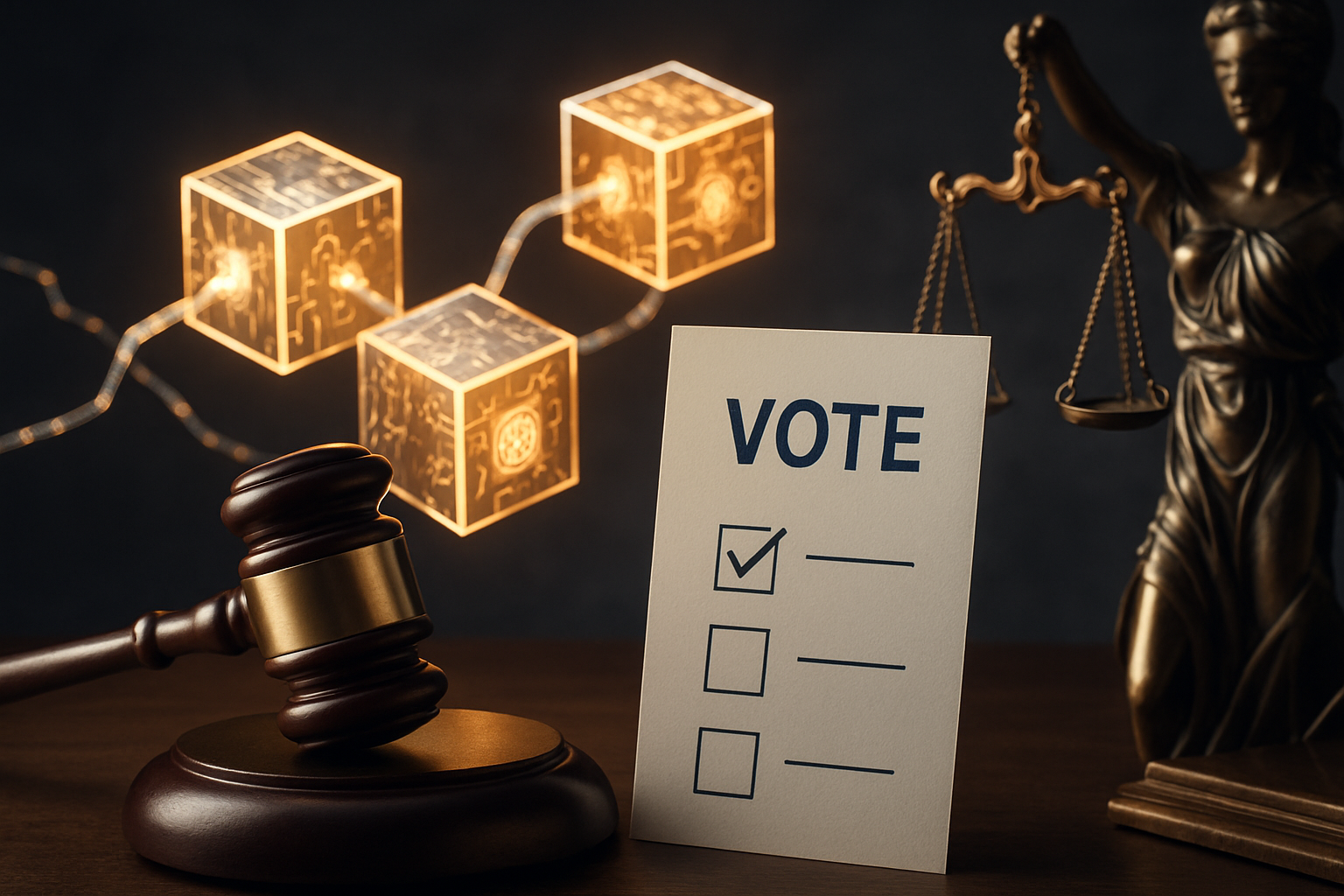Title: Legal Implications of Blockchain in Voting Systems
Introduction: Blockchain technology, renowned for its role in cryptocurrencies, is now making waves in the realm of democratic processes. This article explores the legal landscape surrounding the implementation of blockchain in voting systems, examining potential benefits, challenges, and the evolving regulatory framework.

Historical Context of Voting Technology
The evolution of voting technology has been marked by a constant pursuit of accuracy, security, and accessibility. From paper ballots to mechanical lever machines, punch cards, and electronic voting systems, each advancement has brought its own set of legal considerations. The introduction of blockchain technology represents the latest chapter in this ongoing saga, prompting lawmakers and election officials to grapple with novel legal questions.
Potential Benefits of Blockchain in Voting
Blockchain’s decentralized and immutable nature offers several potential advantages for voting systems. These include enhanced security against tampering, increased transparency through public verifiability, and improved efficiency in vote counting and result reporting. From a legal perspective, these benefits could potentially address longstanding concerns about election integrity and voter confidence.
Legal Challenges and Considerations
Despite its promise, the implementation of blockchain in voting systems raises significant legal challenges. Privacy concerns emerge as a primary issue, as the technology must balance the need for transparency with voters’ right to secrecy. Additionally, questions of accessibility and equal protection under the law arise, as not all voters may have equal access to or understanding of blockchain-based systems.
Regulatory Framework and Legal Adaptation
The integration of blockchain into voting systems necessitates a comprehensive review and potential overhaul of existing election laws. Legislators and regulatory bodies must consider how to adapt current statutes to accommodate this new technology while preserving the fundamental principles of fair and free elections. This may involve creating new legal definitions, establishing standards for blockchain-based voting systems, and developing protocols for system audits and dispute resolution.
International Perspectives and Legal Harmonization
As blockchain voting systems transcend national borders, international legal considerations come into play. Different countries may adopt varying approaches to regulating blockchain in elections, potentially leading to conflicts in cross-border voting scenarios. The development of international standards and legal harmonization efforts will be crucial in addressing these challenges and ensuring interoperability of blockchain voting systems across jurisdictions.
Cybersecurity and Legal Liability
The implementation of blockchain in voting systems introduces new cybersecurity considerations and associated legal liabilities. Election officials and technology providers may face heightened scrutiny and potential legal consequences in the event of system breaches or failures. This necessitates the development of clear legal frameworks for accountability, including defining standards of care and establishing procedures for investigating and remedying security incidents.
Voter Identity Verification and Legal Implications
Blockchain voting systems raise important questions about voter identity verification and its legal implications. While the technology offers potential improvements in preventing voter fraud, it also introduces new challenges in ensuring compliance with existing voter identification laws. Legislators must navigate the delicate balance between leveraging blockchain’s capabilities for secure authentication and preserving voter privacy and accessibility.
Conclusion: Shaping the Future of Democratic Processes
The integration of blockchain technology into voting systems represents a significant development in the ongoing evolution of democratic processes. As this technology continues to advance, legal frameworks must adapt to address the unique challenges and opportunities it presents. By carefully considering the legal implications and working to develop comprehensive regulatory approaches, policymakers can help ensure that blockchain voting systems enhance rather than undermine the integrity and accessibility of elections. The coming years will likely see continued legal discourse and policy development in this area, shaping the future of how societies conduct and safeguard their most fundamental democratic processes.





